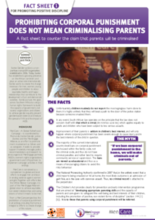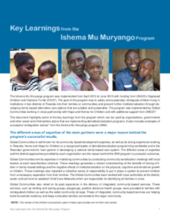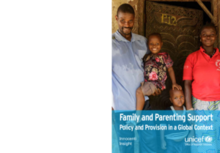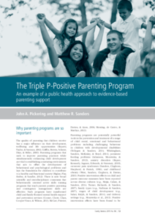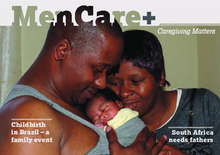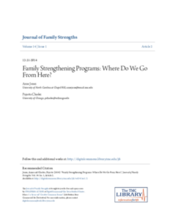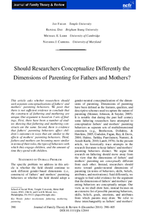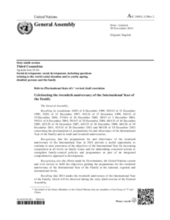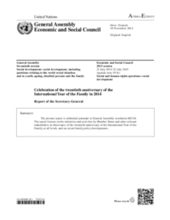Displaying 581 - 590 of 947
These eight MenCare “Positive Discipline Fact Sheets,” authored by MenCare co-coordinator Sonke Gender Justice, debunk common myths about corporal punishment and promote positive discipline and caregiving.
This document highlights some of the key learnings from the Ishema Mu Muryango program, a program designed to safely and sustainably reintegrate children living in institutions in two districts of Rwanda into their families or communities and prevent further institutionalization.
This report examines and analyses policies and provision for family support and parenting support based on general literature searches and evidence gathered from 33 UNICEF national offices and detailed case studies of nine countries.
This article provides an overview of the Triple P Parenting Program in Australia. The article presents the evidence supporting the Triple P Program and describes how a public health approach to parenting support works.
This report provides firsthand accounts of how MenCare+ is making a difference in the lives of individuals and families around the world.
This paper describes a study that examined the economic challenges faced by low-income, unmarried parents in the United States who participated in the Strong Couples - Strong Children (SC - SC) program, a federally funded initiative intended to help strengthen relationships of fragile families by providing relationship education programs.
Through a desk review of peer reviewed journal and “grey” literature published in English and Russian languages, this paper provides a review of current deinstitutionalization efforts in the region, identifies potential challenges, describes the need for economic empowerment interventions, and outlines directions for future research.
This article asks whether researchers should seek separate conceptualizations of fathers’ and mothers’ parenting behaviors. The researchers find that there is not sufficient evidence to conclude that the constructs of fathering and mothering are unique.
A brief revised draft resolution from the UN General Assembly on the twentieth anniversary of the International Year of the Family and its recognition of the continued importance of “giving due consideration to advancing family policy development in the ongoing discussion on the post-2015 development agenda.”
The present report is submitted pursuant to General Assembly resolution 68/136. The report focuses on the initiatives and activities by Member States and other relevant stakeholders in observance of the twentieth anniversary of the International Year of the Family, at all levels, and on recent family policy developments.

